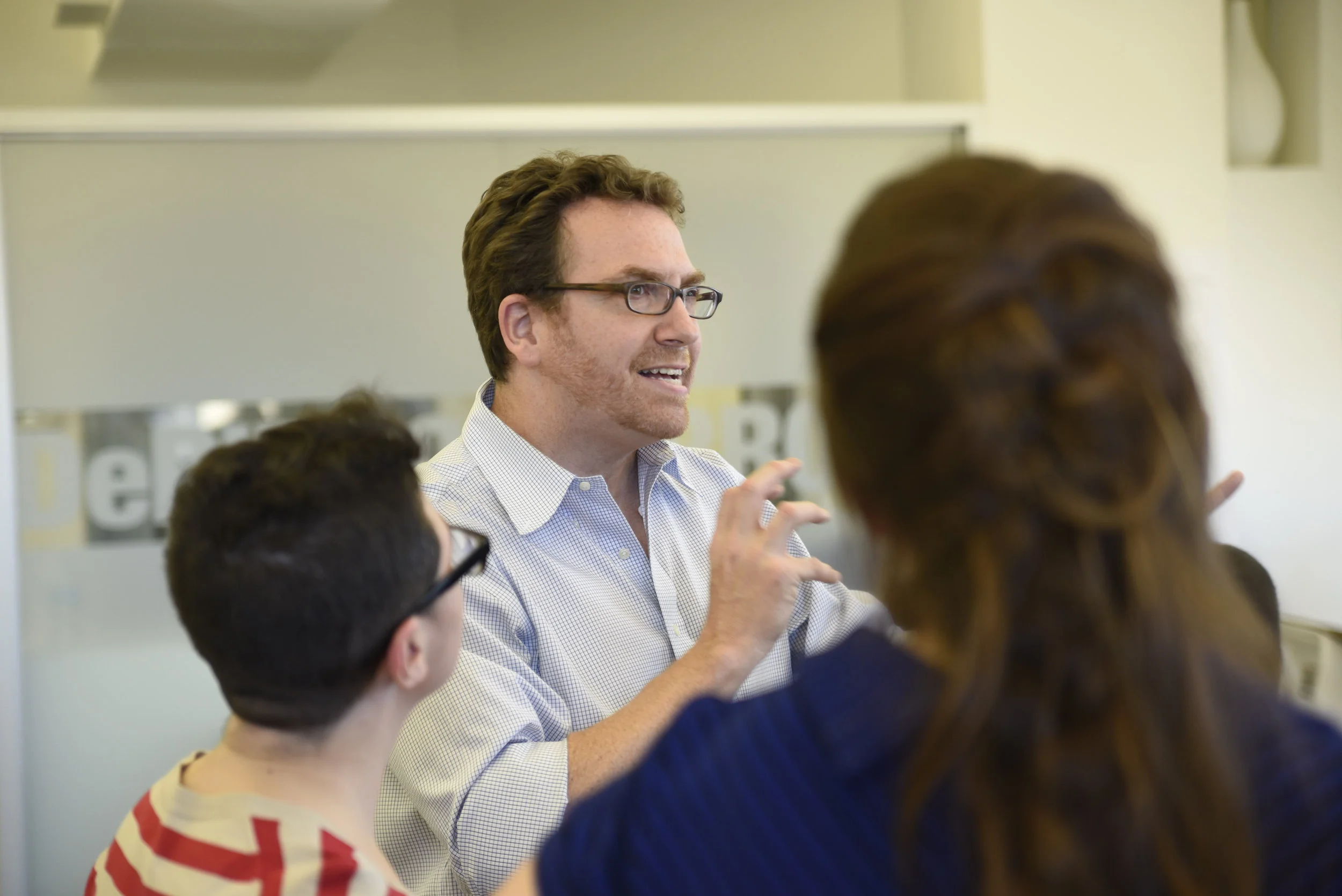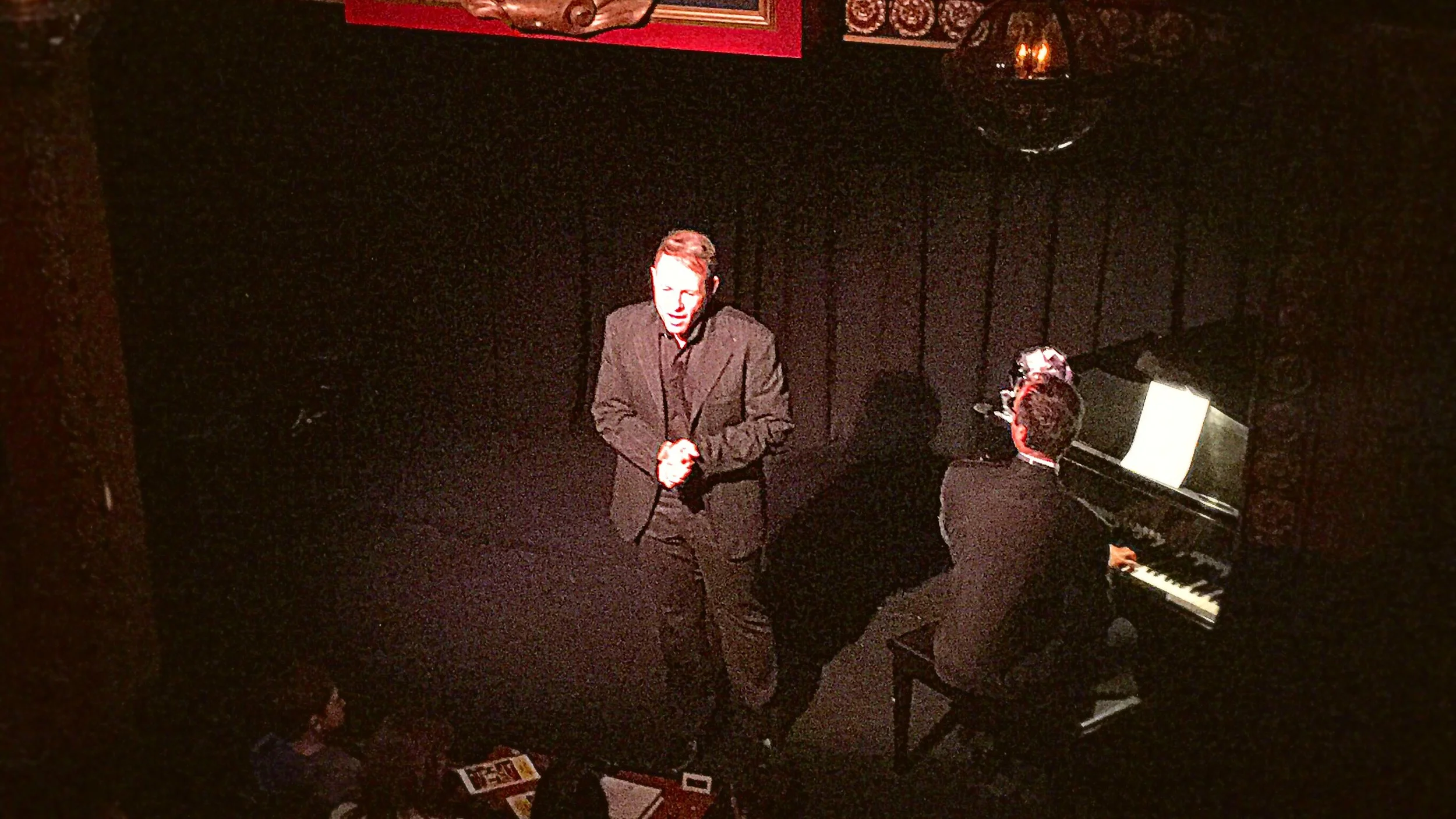The judgment factor
around what SHOULD happen versus what WILL happen, can make the difference between a solid and a shaky foundation in a scene.
Rob Schiffmann
We all know that a central tenet of improvisation is "Yes And." This is, of course, the idea that we accept our scene partner's offer and then add to it. If our scene partner says, "it's Wednesday," we can agree and add to that by saying "Yes! And it's my birthday." By adding bricks to this wall of information, we build a structure that is both recognizable and unique. At first glance, this doesn't seem difficult. It's easy to simply say the word "yes," right?
Oh, if only it were that easy.
Will
We all come to situations with pre-formulated ideas of how things WILL and SHOULD happen. It is how we get through life. We hold on to expectations that we can live by. They provide a safety net - as long as they happen the way we expect them to. Of course, we all know that they often do not and then where are we? We must be present enough to adjust to reality as it happens in the moment.
Now that's all well and good when we are addressing the part of us that expects things WILL happen a certain way. It is not as helpful when addressing the part of us that expects things SHOULD happen a certain way. It is this central judgment which we attach our expectations to that gets us in trouble.
Should
"If I say it's my birthday, you SHOULD respond with 'then I will take you to dinner' and any other response is less than adequate because I don't know where it will lead."
Our attachment to our own ideas makes the idea of 'Yes And' doable but often, with gritted teeth. Both partners in our discourse, however, feel this resistance, and thus our mutually built structure becomes less stable. The judgment factor around what SHOULD happen versus what WILL happen, can make the difference between a solid and a shaky foundation. Yet this sense of 'SHOULD is common and it is there for a reason.
That reason, of course, is the dreaded C-word: CONTROL. Control - while often portrayed in a negative light - is clearly an adaptive and self-protective tool. It is not necessarily BAD to be someone who exercises control. Its value, either positive or negative, is determined by its context. When building a structure together, though, it can often sway towards the negative. But where does it come from, this need to control and stick with our SHOULDs? It comes from fear. Fear of the unknown is a powerful one and can derail a sense of adventure.
One of the Best Improvisers I Know
One of the best improvisers I know is (lucky for us) a member of our company. Stefan Schick is known throughout the improv community as being a pleasure to play with because he has no agenda around his ideas. There is no SHOULD. He puts out an idea and however you respond, he is on board 110%. The same is true if the idea came from you. This makes him a valuable improviser. He can be counted on to help to build that solid structure we are all aiming for. How did Stefan end up as this type of improviser? I imagine it came from a loving family who supported his ideas as a child and thus modeled for him the joy one can feel when diving into the imagination of others. Knowing his lovely family - both the members he grew up with and the ones he is currently growing with his wife - I can say for sure that there is a sense of inclusion and play that is a constant presence. This is how Stefan became the guy who will take and run with your ideas and thus the improviser everyone wants to play with. I clearly admire him greatly.
As with Stefan, we all start out in the sand box playing with the other little excavators who happen to inhabit that space with us. How we play in those times tends to be how we play later in life. Let's all do our best to make sure that we are more invested in the moment as it actually happens than how we imagine it WILL or how we think it SHOULD happen. This will make all our fellow sandbox improvisers around us want to play with us more!

























